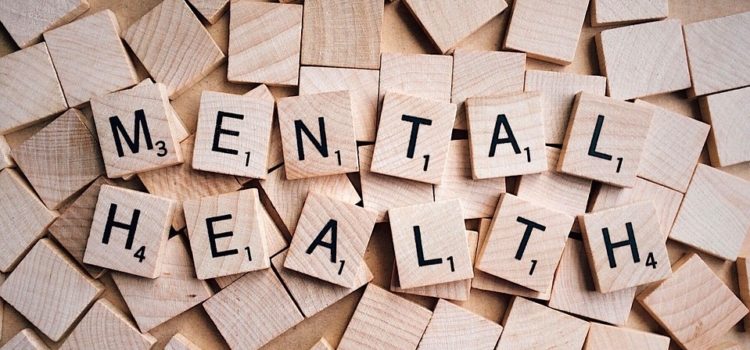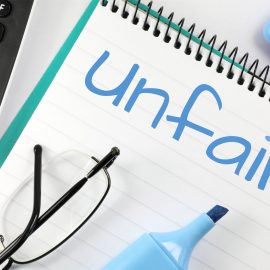

This article is an excerpt from the Shortform book guide to "Spare" by Prince Harry. Shortform has the world's best summaries and analyses of books you should be reading.
Like this article? Sign up for a free trial here.
Why did Prince Harry struggle with his mental health? What did Harry do for treatment?
A clear theme in Prince Harry’s book Spare is his lifelong struggle with anxiety and trauma. Though his poor mental health tinges on many of the experiences he shares in the book, he focuses specifically on the period from 2013 to 2015, when his mental health was at its worst.
Continue reading for deeper insight into Prince Harry’s mental health struggles.
Initial Experiences With PTSD and Anxiety
Prince Harry reveals that he’s experienced intense anxiety throughout most of his life. By the end of the summer of 2013, Prince Harry’s mental health was declining sharply. He experienced alternating bouts of crippling depression and panic attacks. He developed a phobia of crowds and public spaces, but his worst fear was of cameras, with days-long anxious episodes triggered by the mere sound of a camera shutter.
(Shortform note: Anxiety like Harry describes here is the body responding to danger, triggering what’s commonly called the “fight, flight, or freeze” response. In other words, Harry was interpreting everyday things like crowds and cameras as physical threats to his safety, and his body was responding with a primal stress response.)
Harry began spending most of his days indoors, locked in his apartment, watching old sitcoms on repeat and eating takeout. Though he sometimes went to a dinner party or a club, he says that it was never worth the anxiety and the media attention he got from doing so. When he had to go shopping, he planned his outings as if they were missions for the military: He’d have the most efficient route planned out ahead of time so that he could spend as little time as possible in the store. Harry eventually realized that he was suffering from post-traumatic stress disorder (PTSD); not just from his experiences in Afghanistan, but from a lifetime of trauma beginning with his mother’s death.
What Is PTSD?
Harry’s struggles with PTSD (and poor mental health in general) are a running theme throughout Spare. Although PTSD is most commonly associated with war veterans like Harry, any traumatic experience can cause someone to develop the disorder. For example, being involved in a serious accident or being the victim of domestic abuse could also trigger PTSD—or, in Harry’s case, the traumatic loss of a parent.
Doctors don’t yet fully understand why PTSD happens, but researchers have found several physical changes in people who suffer from it. Most notably, the brain itself changes—parts of the brain associated with processing memories and emotions are noticeably smaller, which may explain why these people feel trapped in the past and constantly anxious. Doctors have also found that PTSD patients have elevated levels of stress hormones like adrenaline, suggesting that they’re constantly in a state of “fight or flight.”
Seeking Treatment
Sometime in 2015, Harry stopped going out altogether aside from shopping, and only when absolutely necessary. He discussed his mental health issues with his father and brother, as well as some close friends.
By the end of that year, he’d found some treatments that helped, including therapy, though he was far from cured. Though he’d refused prescription drugs to help with his anxiety and panic attacks, Harry adds that he’d had some success self-medicating with psychedelic drugs; the ability to change his perceptions of reality, even temporarily, helped to ease his fear and hopelessness.
(Shortform note: Psychedelic drugs are illegal in many countries, including England. However, studies from as long ago as the 1950s have suggested that they may be effective treatments for various mental disorders, including anxiety, depression, and addiction. For example, Johns Hopkins University, one of the world’s most prestigious research universities, says that a single psilocybin treatment can ease depression symptoms for up to a month—when combined with psychotherapy, the benefits can last for up to a year. However, note that these studies refer to using drugs in controlled, clinical settings—doctors strongly advise against self-medicating as Harry did.)
However, Harry says, the single best treatment that he’d found at this time was hard work. Finding something challenging and meaningful to lose himself in, and doing something to make the world a better place, was a more effective medicine for him than any therapist or drug.
(Shortform note: Harry’s discovery here isn’t a new one—purpose, challenge, and growth are essential to long-term happiness. In other words, the best way to feel happy and fulfilled in life is to make constant progress toward a challenging but meaningful goal.)
Getting Effective Therapy
Years later, during an argument, Harry lashed out in anger at his wife Meghan. She insisted that he go back to therapy and get help for his anger, anxiety, and trauma. Harry finally found a therapist that he liked, who helped him to open up about his painful experiences with his family and about how unfairly he and Meghan were being treated by the media.
This new therapist also helped Harry to remove a mental block he’d built up about his mother: Previously, he’d struggled to remember details about her, and he’d lost many memories involving her. The therapy allowed him to recall those old memories and start to process his feelings about her in a healthy way. This was a major step forward for Harry’s mental health.
(Shortform note: It might seem strange that someone with Harry’s resources would have trouble finding an effective therapist, but it’s not just about finding someone with good credentials—therapy is a deeply personal experience, and it’s therefore crucial to find someone who connects with the patient on a personal level. In other words, it’s not just about finding a good therapist, it’s about finding the right therapist. Some helpful tips for finding the right therapist are to reach out to organizations that handle specific mental health conditions or to get recommendations from friends and family (which was how Harry found his new therapist).)

———End of Preview———
Like what you just read? Read the rest of the world's best book summary and analysis of Prince Harry's "Spare" at Shortform.
Here's what you'll find in our full Spare summary:
- Prince Harry's autobiography about growing up as a member of the Royal Family
- The struggles that come from being the younger son—not the heir-apparent
- How Prince Harry deals with harassment from paparazzi and mental illness






